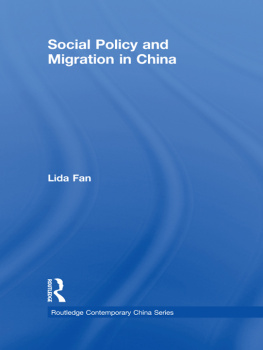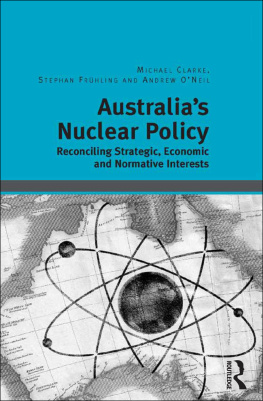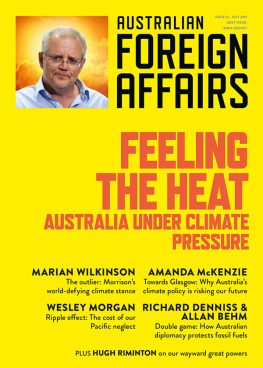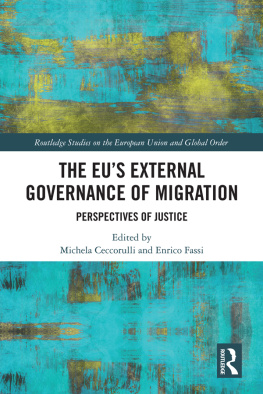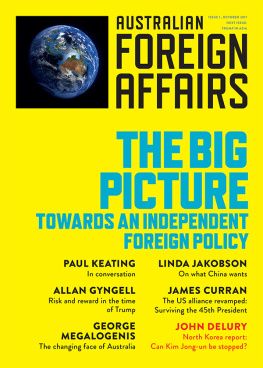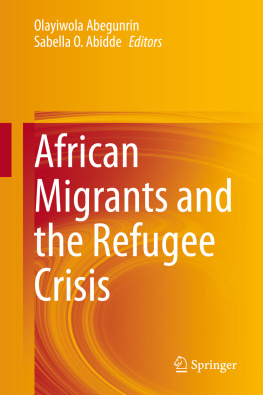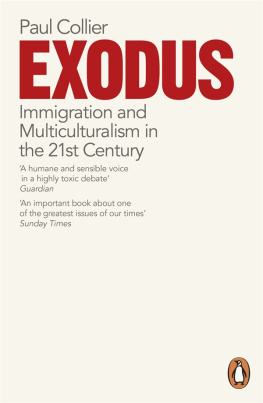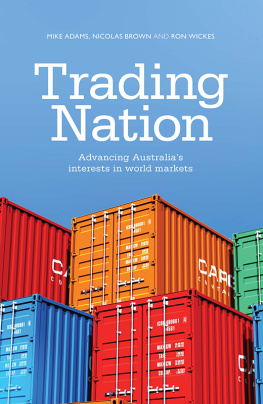
The Political Economy of Migration and Post-industrialising Australia
During the 1980s and 1990s, Australias migration intake turned rapidly towards recruiting business professionals, managers and entrepreneurs to support the countrys entry into an economic system marked by global value chains. This book analyses the policy idea termed Productive Diversity, introduced by the Australian government as a way of conceptualising the belief that migrants would bring business acumen and a global outlook to help Australia compete as a trading nation.
The book examines this germinal period of Australias economic reorientation through a close inspection of policy documents, parliamentary hearings, economic and migration statistics, and interviews with the architects of the policy. It provides a comprehensive account of how the policy framework emerged, how it was implemented, and studies the rationale in recruiting self-starters and managers to connect with global trade flows.
This work will be of interest to students and researchers of migration studies, especially Australian migration, diversity policies, sociology, multiculturalism, economics, development studies, and Asia-Pacific studies. The methods and data will also be of value to political economists and policy makers.
Patrick Brownlee is Director of Research Partnerships in Education and Social Work, University of Sydney, Australia. His research into migration and policy stems back decades as a result of coordinating a research program on Asia-Pacific migration, funded by UNESCOs Management of Social Transformations initiative. He also publishes in the field of education and knowledge production. He has a PhD in Political Economy from the University of Sydney.
The Political Economy
of Migration and
Post-industrialising
Australia
Valuing diversity in
globalised production
Patrick Brownlee
First published 2021
by Routledge
2 Park Square, Milton Park, Abingdon, Oxon OX14 4RN
and by Routledge
52 Vanderbilt Avenue, New York, NY 10017
Routledge is an imprint of the Taylor & Francis Group, an informa business
2021 Patrick Brownlee
The right of Patrick Brownlee to be identified as author of this work has been asserted by him in accordance with sections 77 and 78 of the Copyright, Designs and Patents Act 1988.
All rights reserved. No part of this book may be reprinted or reproduced or utilised in any form or by any electronic, mechanical, or other means, now known or hereafter invented, including photocopying and recording, or in any information storage or retrieval system, without permission in writing from the publishers.
Trademark notice: Product or corporate names may be trademarks or registered trademarks, and are used only for identification and explanation without intent to infringe.
A catalogue record for this book is available from the British Library
by MPS Limited, Dehradun
For Aki, for Luca and for Sassica: my inspiration
Contents
This is a work of political economy. By that, I mean it is concerned with the task of confronting the accumulation of material resources that benefits the few over the many. Migration has long been of interest to political economy. And both of these fields of academic work have also been of interest to me thanks in large measure to an Irish Catholic working-class education and where I grew up. Hence, these words are a personal account as both a preface to how and why I wanted to write this book and an acknowledgement from a personal perspective.
When I first began to read and write about migration and the global political economy I was working on a part-time basis in the Centre for Multicultural Studies at the University of Wollongong. That Centre had developed a tangible relationship with the Office of Multicultural Affairs (OMA), the bureaucracy that is credited with developing and running with the idea of Productive Diversity a key subject of this book. OMA commissioned the Centre to conduct extensive research on migration and multicultural Australia. These were heady days in the scholarship and debate over Australias politics of identity, the purpose of migration and the economy (read Mark Lopezs work on multiculturalism to get a sense of it all). During the mid-1990s, the Centre also started work on an international migration research network, focused on the Asia Pacific. All of a sudden, the domestic research agenda was being augmented by research on what was happening globally in terms of mass migration and the links that Australia had forged with countries the Asia Pacific over the last decade or so. I was fortunate to travel in the region and met with migration researchers at a time when the study of migration was also developing its identity as a multidiscipline.
That we worked in and among a city, Wollongong, that was a major coal-mining and steel-making city that then represented the old industrial and migrant-driven economy, made the study of migration and diversity all the more palpable. I grew up there in a family dependent upon the steelworks and in a diverse neighbourhood. I lived some 200m from a refugee hostel in the town of Fairy Meadow, which had been a first home to many European migrants postwar and, during the 1970s, had settled hundreds of Vietnamese refugees. These childhood experiences of my neighbourhood were indelible and left me forever curious about the world from where everyone else seemed to have a connection or from where they had fled.
The people I worked with in and through that Centre I have to acknowledge with a heartfelt nostalgia for their brilliant ideas, camaraderie and political purpose. Forever thanks to Director of the Centre, Stephen Castles, most of all for his friendship and for giving me the opportunity to be even a very small part of that Centre and what it represented.
A work of this nature, that is, with the original idea having been in slow and steady fermentation, seemingly over decades, has many more individuals deserving of acknowledgement. Much of the material in this book was eventually brought together in my Doctoral studies and therefore my most emphatic thanks must go to Stuart Rosewarne and Bill Dun, two formidable critics, the likes of whom every PhD student should have. I am grateful for their generosity of spirit most of all.
Four individuals agreed to be interviewed for my Doctoral work and the reflections of two of these, Toni Fedderson and Neil Edwards, are featured extensively in a number of chapters of this book. Toni and Neil were the most thoughtful and accommodating research participants. Their insights were invaluable and challenged my thinking. I hope that their endeavours are remembered as important contributions to a certain moment in Australian policy making. Thanks, then, also to Bill Cope, a former Head of OMA, and to Nick Bolkus, a former Immigration Minister who contributed interviews that informed my further research.
Ellie Vasta (also a member of that same Centre for Multicultural Studies), I have to thank for more recent help: reading and commenting thoughtfully on two chapters of my doctoral work, some of which informs . Likewise, Stephen Brown, who read many chapters and offered his usual unassuming and kind appraisal of my arguments.


